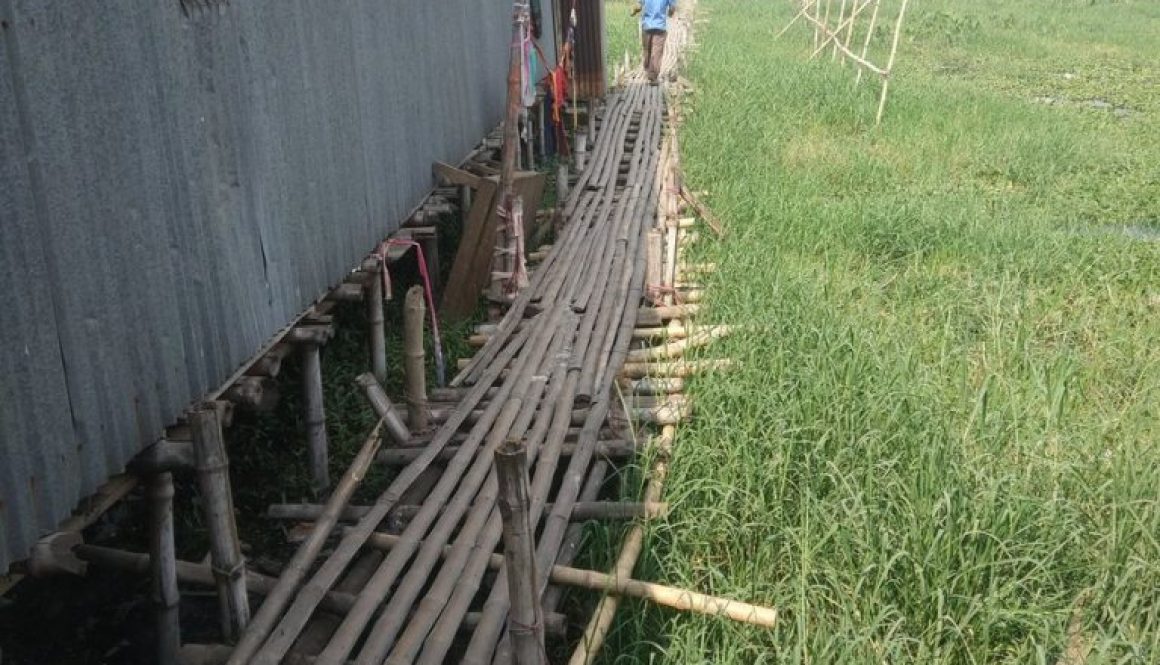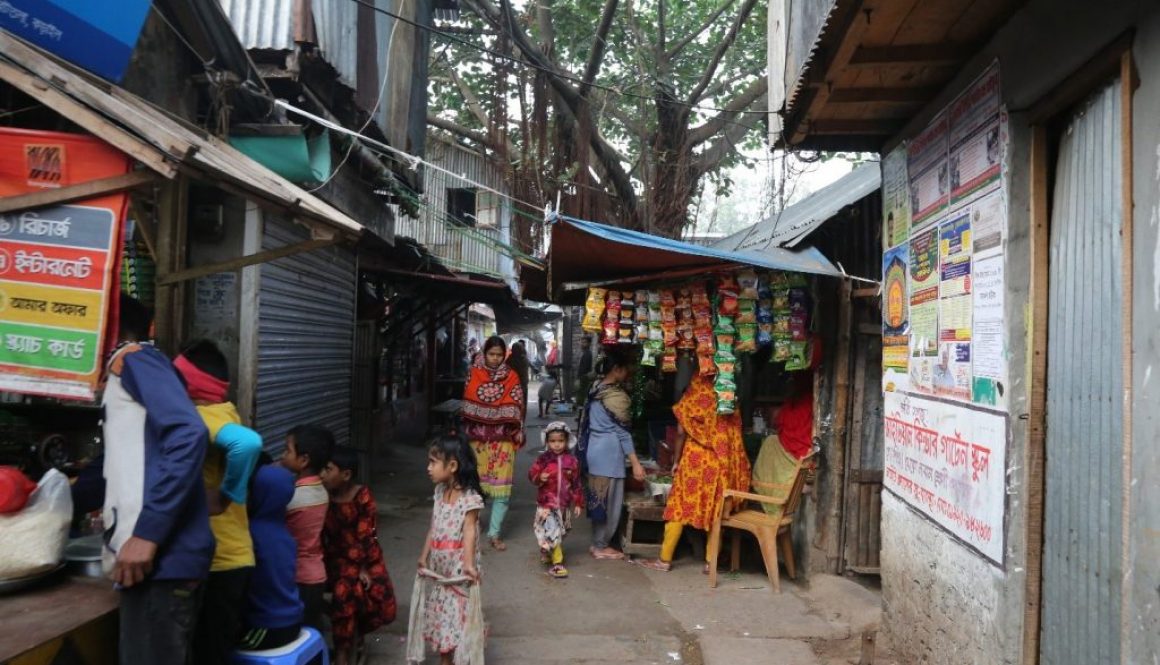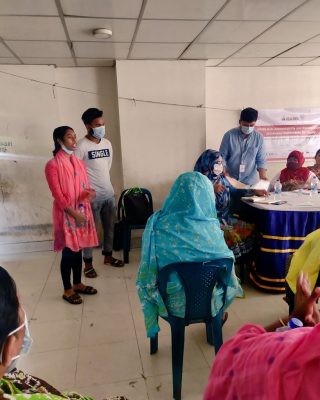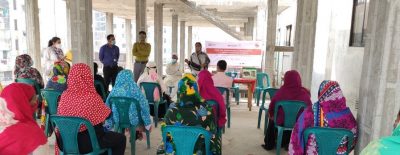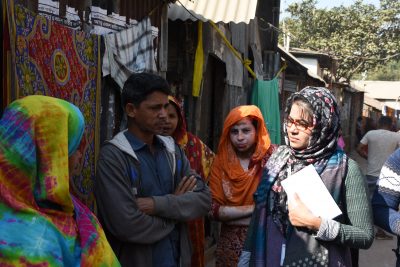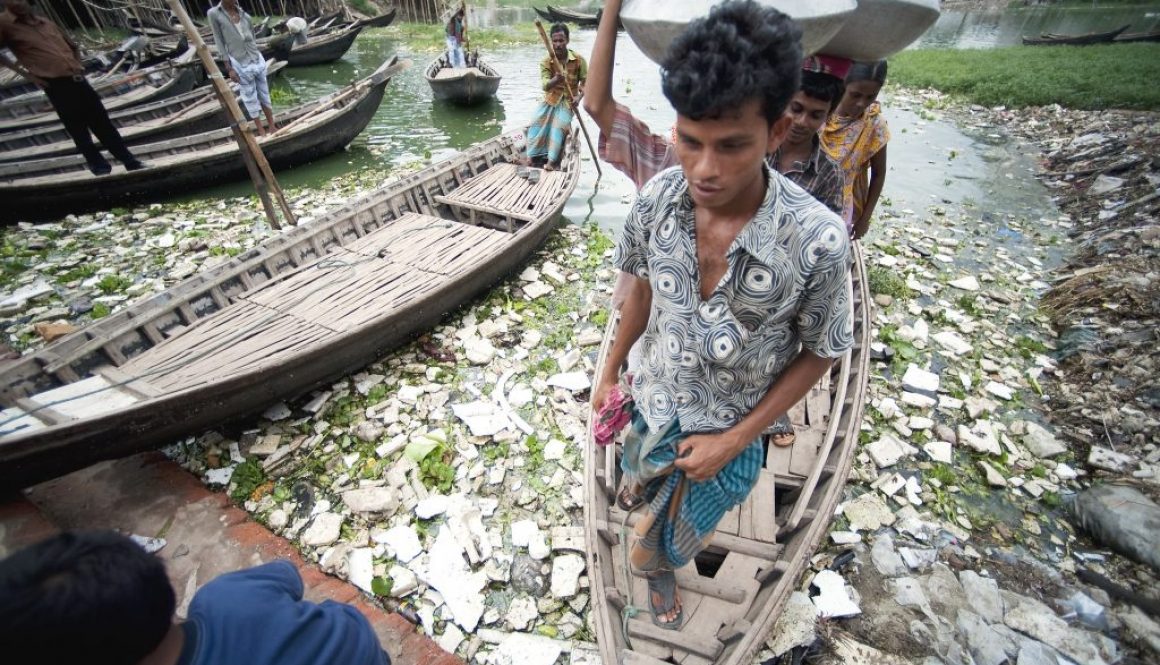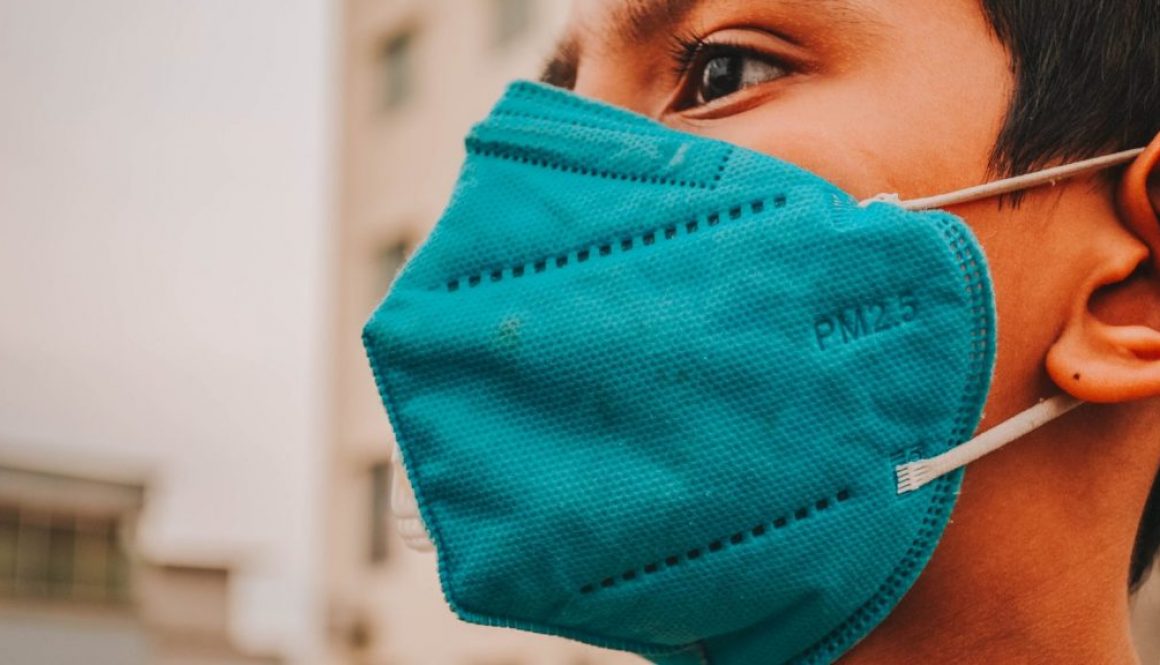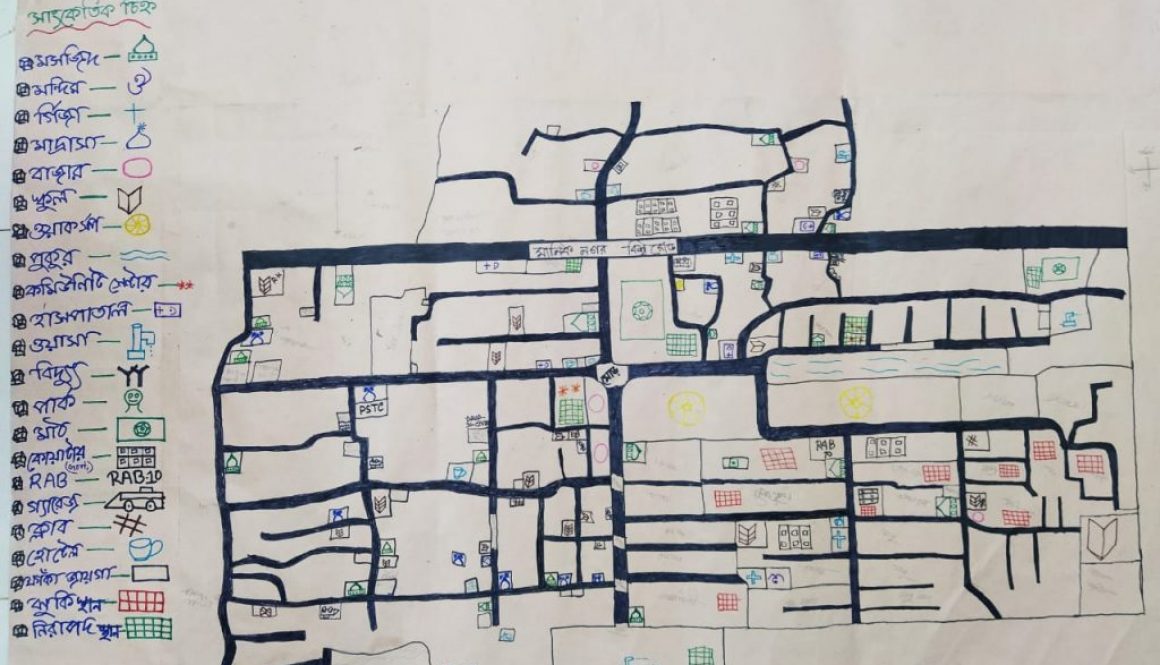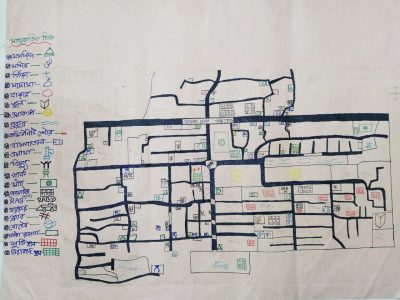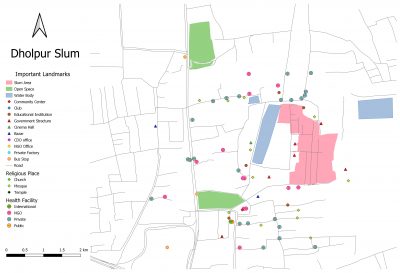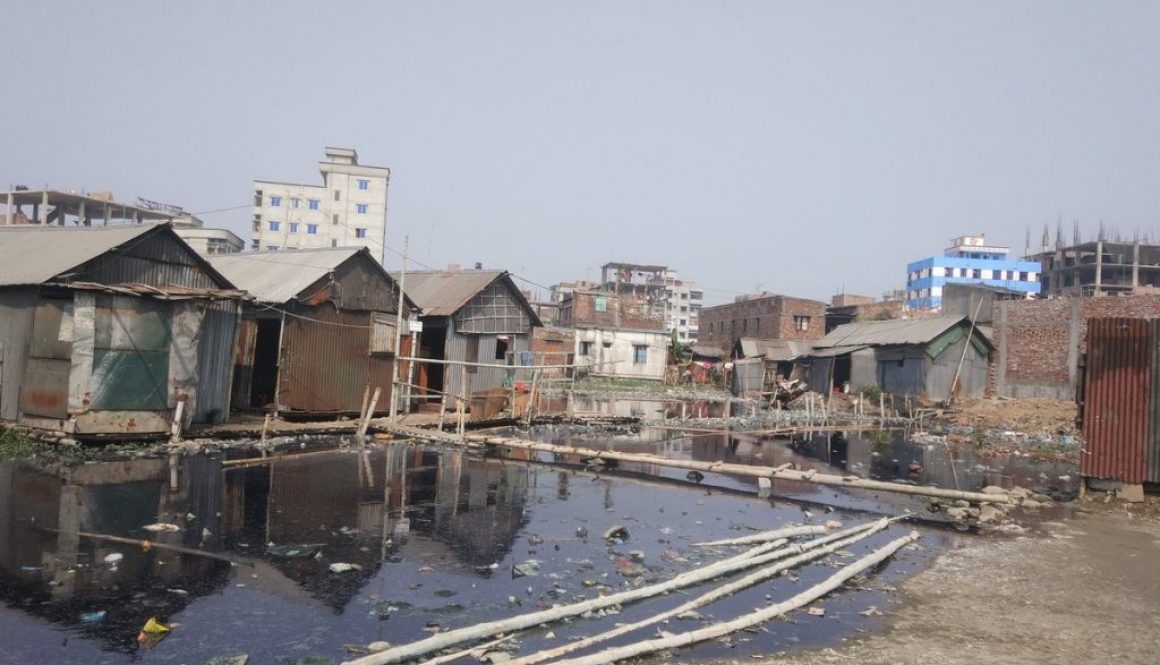Reflections and dilemmas: My visit to an urban informal settlement
In this blog post Farzana Manzoor takes us to Nama-shyampur, an informal settlement located at the edge of Kadamtali Thana, under Dhaka South City Corporation (DSCC). This area is home to more than 5.5 thousand people.
It was my first ever visit to shyampur as part of ARISE. It was a very different experience for me, I have been to slums in Mirpur and Korail but this visit made me realize that not all slums are similar.
Every year there is an inflow of people from villages and towns coming in search of a better life and a roof over their heads, as many of their houses are flooded due to natural calamities. Many migrants come to earn a livelihood from industries like the steel, rods, cement and garments sectors or to be a domestic worker.
Heterogeneity
When I visualize a slum, I think of homogeneity in the physical layouts of housing. But Shyampur mixes high rise buildings with tin shaded houses and 12-20 feet wide roads. The more I walked through the roads, I had the feeling of a rustic kind of place. Passing through the pathways, there was a swamp followed by a garbage corner and at the side of which few vacant, drowned low-lying houses were found.
Heterogeneity can be vividly seen in this area. There are differences between the local community and migrants. Moreover, from the informal discussion with a Community Development Organization (CDO) it appeared there are disparities between the areas on the upper side of railway named “Ucha-shyampur” and underneath the railway, “Nama-shyampur”. Ucha means upper and Nama means lower, both the areas connote the types of lands and the people residing on them. People from Ucha-shyampur are mostly business people or landlords and are more solvent whereas people of Nama-shyampur earn less and are day laborers, factory workers etc. Ucha-shyampur has big buildings whereas Nama-shyampur has few newly constructed building structures.
“Ucha-shyampur sort of undermines the Nama-shyampur.”
Defining Marginalization
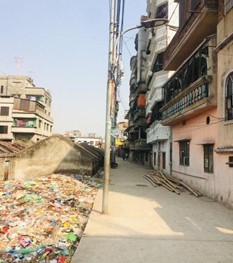 While walking towards the edge of the area, it seemed like the railway line had separated two distinctive contexts. One side consists of mills, factories or industries and the opposite houses in a precarious state. Actually, it can be viewed from varied perspectives. The industrial site is a source of livelihood for the people who are residing on the opposite side of the tracks. Or one side produces hazardous chemicals and waste particles and the other is a dumping zone for this garbage. It is very difficult to measure whether the contribution or advantages of one side outweigh the hazards and disadvantages caused by them to the other side.
While walking towards the edge of the area, it seemed like the railway line had separated two distinctive contexts. One side consists of mills, factories or industries and the opposite houses in a precarious state. Actually, it can be viewed from varied perspectives. The industrial site is a source of livelihood for the people who are residing on the opposite side of the tracks. Or one side produces hazardous chemicals and waste particles and the other is a dumping zone for this garbage. It is very difficult to measure whether the contribution or advantages of one side outweigh the hazards and disadvantages caused by them to the other side.
Marginalization can be defined in various ways. Few of the vulnerable sites that we visited had pipes and illegal lines, whereas six or seven minutes away you can find a high-tech water ATM booth with a filtered water pump where customers can buy water by using a prepaid card. To use the ATM card, you have to be a member of that community, must have a national ID card (citizen card) and apply for the card by submitting required papers including an application fee.
It is surprising how the differences are so clear within one community. When we asked one of the community people about the initiatives to address these issues, he indicated the avaricious nature of the ‘chair’ (‘chair’ represents the power and position of the local governance actors, for example local elected Ward Councillors, who are responsible for the development of a particular area). It seems people work for advantage or profit rather than serving vulnerable people and welfare of the society.
“The problem is with the chair not with people.”
Perilous roads
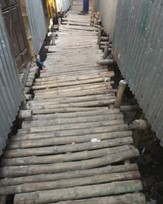 When entering the slum, the roads are wide and well developed, though, with poor drainage systems and overloaded garbage corners. But the roads or narrow pathways that we had to take deeper in the slum, those were very fragile. Most of these roads were made up of bamboo stilts and some were thin wooden pieces balanced over the industrial wastewater. This made me wonder how the people living within that area walk around. Especially for the children living in this area. They grow up in stinky air and can easily come into contact with contaminated drainage water sources.
When entering the slum, the roads are wide and well developed, though, with poor drainage systems and overloaded garbage corners. But the roads or narrow pathways that we had to take deeper in the slum, those were very fragile. Most of these roads were made up of bamboo stilts and some were thin wooden pieces balanced over the industrial wastewater. This made me wonder how the people living within that area walk around. Especially for the children living in this area. They grow up in stinky air and can easily come into contact with contaminated drainage water sources.
As we walked through the community, there were people staring at us from their doorways who have no option but to put up with such precarious houses, pathways and surroundings which they call home. I felt guilty of covering my nose with the scarf but it was difficult to breathe in the chemical mixed air. One of the women taunted me saying,
“We are poor so we can take it but you are solvent so you are unable to breath in dirty air.”
This was a reminder of the inequity that persists within the research process. It creates dilemmas related to keeping myself safe while simultaneously aiming to safeguard the co-researchers and community people to the same level. Being an early career researcher, such field visits, face to face interactions with community, attending community meetings all contribute to deeply understanding the reality and perceiving the experiences of community people living in informal settlements.
